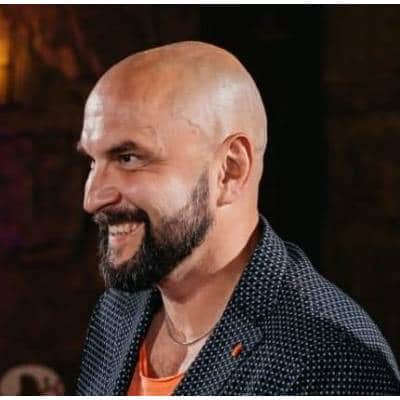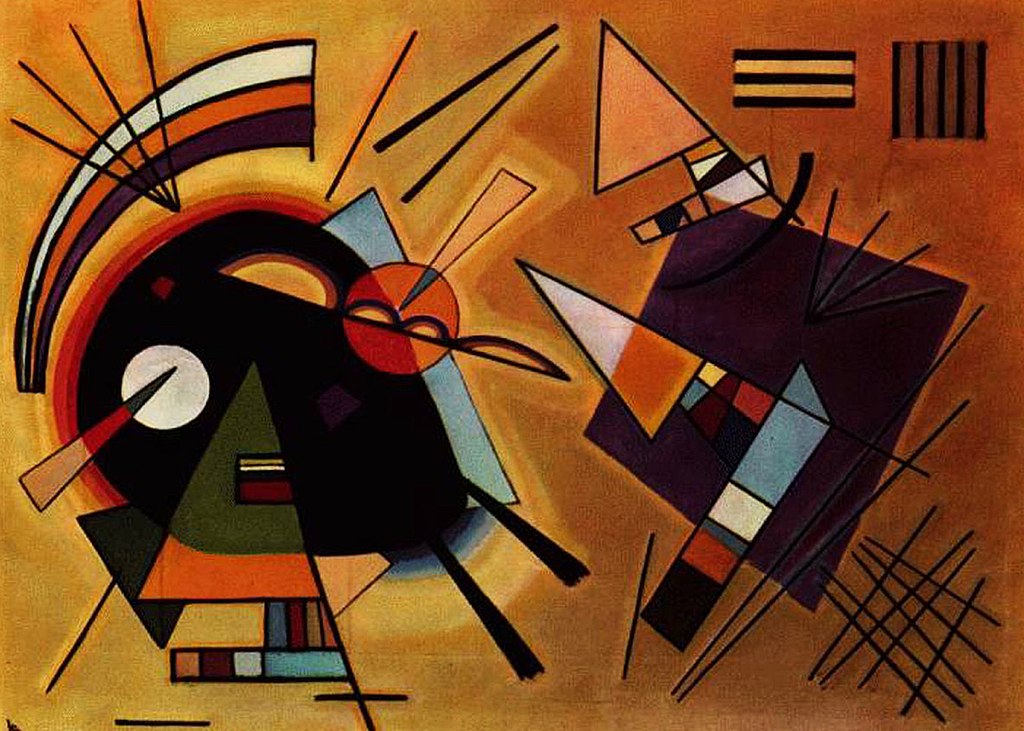About the Author:

Alexander Bokmarev
St. Petersburg, Russia
Alexander Bokmarev lives in St. Petersburg, Russia.

I’m one of those “can’t-roll-their-r” guys, which is why Catherine fell in love with me.
Actually, when I speak English, it’s hard to tell that I can’t roll my r. The English r is easy for me. But Catherine knows Russian. On my first day in Washington, while I was choking on my eighth cigarette of the morning, she came up to me and said a password: “Zdravstvuite”.
“Zdravstvuite,” I responded and won her heart with my wonderful inability to roll my r.
The next day Catherine offered me a job. An easy job, simply to help her translate something into English. I accepted it. From that day on, my life intersected with Grandpa Shapiro’s.
Catherine is a young sociologist with a focus on gender issues and fake nails. She is in her second year of writing a book, The Holocaust in 18th and 20th Century Russia. In her spare time away from the Holocaust, Catherine translates V.S. Pecherin’s memoir, Notes from the Grave, into English and works for the Washington, D.C. Visitors Bureau (CVB). Catherine has a passion for Russian painting (primarily, Chagall), Russian poetry (Mandelstam and Pasternak), and classical music (performed by Richter and Rostropovich). Catherine is Grandpa Shapiro’s only granddaughter.
Grandpa Shapiro celebrated his 85th birthday in August. He is dry, enigmatic, and hunched over. He has wonderful smart eyes, gray hairs in his nostrils, and a soft, calm smile. Grandpa Shapiro fought in France and freed prisoners of Buchenwald. Grandpa Shapiro knows five words in Russian – “thank you”, “bye”, “no”, “bar mitzvah”, and “Hitler kaput”. Grandpa Shapiro has a Soviet medal for the liberation of Berlin.
Catherine hides the fact that her affection for me sprang up spontaneously and was caused by my inability to roll my r. She says she chose me because I am from Petersburg.
“And St. Petersburg,” explains grandfather Shapiro, “was once known as the residence of P.P. Shafirov, vice-president of the Petrine Foreign Collegium.”
The account of Shafirov’s tragic fate, in Catherine’s forthcoming book, illustrates the beginning of the Holocaust in Russia. As the Chief Procurator of the Senate Skornyakov-Pisarev testified: “…Shafirov is not a foreigner, he is of kike origin, a boyar servant, nicknamed Shayushkin’s son, while Shayushkin’s father was a shofar as a schoolboy in Orsha.” For this denunciation Peter Pavlovich, a man undoubtedly educated, a notable historian and vice-chancellor, even tried to poke Skornyakov-Pisarev with a sword during a banquet at the house of Yaguzhinsky.
In 1723 at the instigation of Menshikov and Ostermann, Shafirov was arrested and exiled to Siberia. At first, Catherine did not want to mention Ostermann’s unsightly role, but Grandfather Shapiro proved to her that Ostermann was a German name and Ostermann remained in the book, nailed to a pillar of shame, with a snake in his heart and the label “anti-Semite” on his forehead.
My job is to explain the meaning of two excerpts from the book “A Nobleman’s and Merchant’s Estate in the 16th-19th Centuries” (Moscow, 1989).
Excerpt 1
“Before the arrest of P.P. Shafirov, the manager G.P. Runov (55 years old) had 11 horses and 2 foals, 3 cows, 2 heifers, 4 heifers, 34 sheep with 30 lambs, 11 geese and 2 gooses, 4 ducks and 44 ducklings, 8 turkeys, 69 Russian hens. In the 48 poods of bread were kept as of the end of July 1723.”
In this passage, which illustrates the prosperity of Shafirov’s top management, Catherine doesn’t understand only one word: “prikaschikova”. It is not in the dictionary. Catherine assumes that it means “the best”. Or perhaps, she says, it means “kosher”.
Excerpt 2
“Serfs in several estates were burdened with a natural tribute. P. P. Shafirov demanded from them (38 people lived in 3 huts) annually 9 poods of hog meat, 9 rams, 6 poods of 30 pounds of butter from 9 cows, 90 chickens, 3200 eggs.”
Two things confuse Catherine in this passage. What is “ob.p.” and whether “hog meat” means “pork meat.” After my explanations, Catherine decides not to include this passage in her book about the Holocaust in Russia.
The next day, we take up Pecherin’s book Notes from the Grave. Although Pecherin’s memoirs are not directly related to the subject of the Holocaust and contain the dreaded word “kike” on every other page, they are particularly appreciated by Catherine. Indeed, the psychological depth of Pecherin’s notes surpasses all other accounts of the Nicholas era.
My job is to explain to Catherine a poem written by Pecherin at the age of 18.
Excerpt 3
How sweet it is to hate the fatherland
And greedily to wait for its destruction.
And in the destruction of the fatherland to see
The rebirth of the world’s dawn.
The poem is not quite right for a book about the Holocaust, which is exactly what I tell Catherine. But she shakes her beautiful, stubborn, serious head and says, “No, let’s leave it in. Just explain what is a dennica.”
“Lucifer,” I translate it into Latin.
“So it’s from the Old Testament!” Catherine exclaims cheerfully. The poem stays in a chapter devoted to the horrors of Nikolai’s anti-Semitic regime.
When the translation is done, Grandpa Shapiro sits down across from me and starts asking me questions about the blockade. I am relieved because most Americans know nothing about the blockade. Lack of food is a thing of horror for the average American, so in order not to traumatize children, American schools omit information about the Leningrad blockade. In three paragraphs they briefly describe the battles on the Eastern Front, the Battle of Stalingrad, and the change of occupation regimes in Eastern Europe.
I retell several episodes from Granin and Adamovich’s book, about a girl named Tanya, about the Badaev warehouses, and about my grandmother, who survived only because she had found a cut-off horse’s head in the yard after a bombing. Catherine listens with tears in her eyes. “How awful,” she says. This makes me feel good again.
On my last day of work, Catherine meets me outside. There is amusement in her eyes.
“I have a surprise for Grandpa,” she says and shows me a small envelope.
“What is it?” I ask.
“An invitation,” Catherine says.
We go inside. Grandpa Shapiro is reading a newspaper, and he perks up when he sees us.
“Grandpa,” says Catherine, “you are invited to the opening of the World War II memorial.”
Grandpa Shapiro opens the envelope and his hands tremble. Then his whole face trembles and he cries. I take the invitation from his hand and read.
Excerpt 4
“Dear Mr. Shapiro,
As a national hero, you are invited to the dedication of the National World War II Memorial on May 29, 2004. The National World War II Memorial is the first grand memorial built in the capital of the great country that saved the world from fascism and stopped the Holocaust. The memorial will be dedicated to all World War II heroes, both American and foreign. President Bush, Senator Bob Dole, Tom Hanks, and others will attend the opening. The two-hour colorful ceremony will take place in the area between President George Washington’s Memorial to the Father of World Democracy and President Lincoln’s Memorial to a prominent human rights activist. More than 100,000 American veterans and their families will attend the ceremony.”
Catherine soothes grandfather Shapiro, pours him tea, and talks nonstop.
“It’s going to be a great day. It’s symbolic. For too long my country’s role in saving the world has been glossed over. The war to save the Jewish people ended long ago, but only now will we finally put a fat end to it. It will be a great day, grandfather. This is the end of the Holocaust.”
“Catherine,” Grandpa Shapiro suddenly says in a completely unexpected way. “Too, I learned in school that the Civil War was fought to liberate African-Americans.”
“Oh, Grandpa,” Catherine sounds slightly upset, “there you go again with your jokes. I mean it. It’s the end of the Holocaust, isn’t it?” she turns to me.
“Yes,” I say seriously, “it’s the end of the Holocaust and the beginning of a new life”.
“Oh wonderful, wonderful brave new world,” Grandpa Shapiro says, stroking Catherine’s cheek.
Translated from Russian

Alexander Bokmarev lives in St. Petersburg, Russia.
“13 short pieces…pungently convey the effects of growing up under a totalitarian regime.” .—Publishers Weekly
A new book of poems by Nina Kossman. “When the mythological and personal meet, something transforms for this reader…” —Ilya Kaminsky
Original poetry by Nina Kossman, accompanied by a selection of poems by Marina Tsvetaeva, translated from Russian by Kossman. “The sea is a postcard,” writes Nina Kossman. There is both something elemental in this vision and—iron-tough.”
—Ilya Kaminsky
A collection of nonsense poetry for readers who love Edward Lear, Hilaire Belloc, and all things delightfully peculiar.